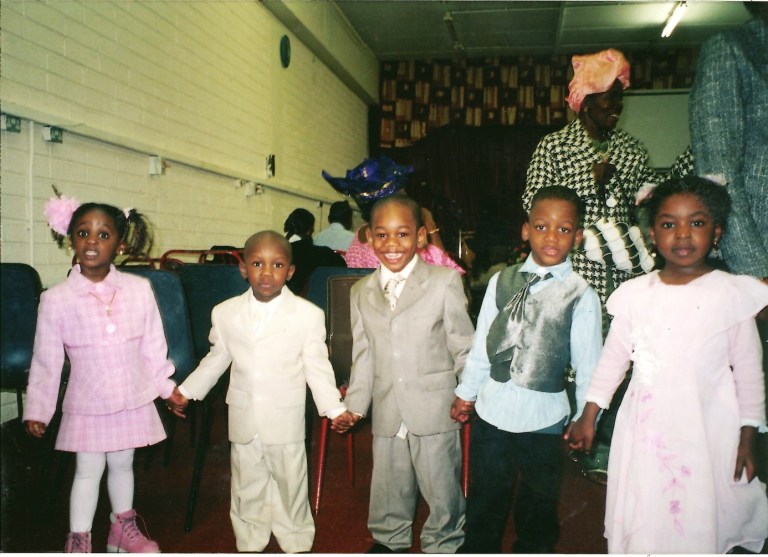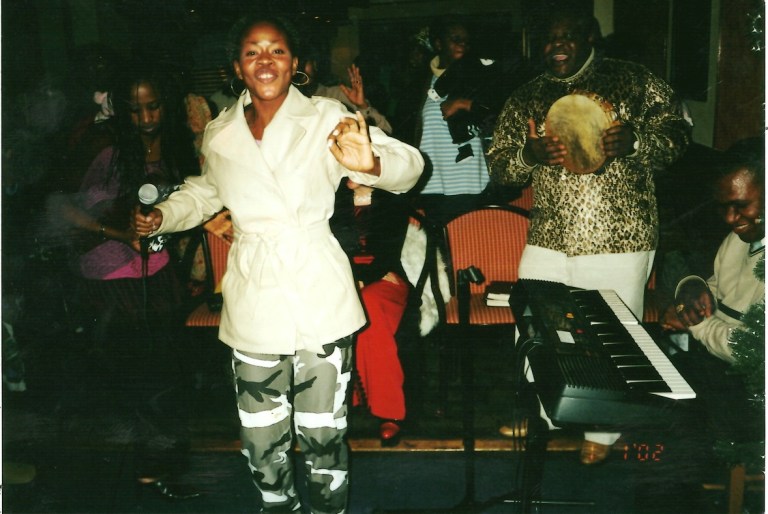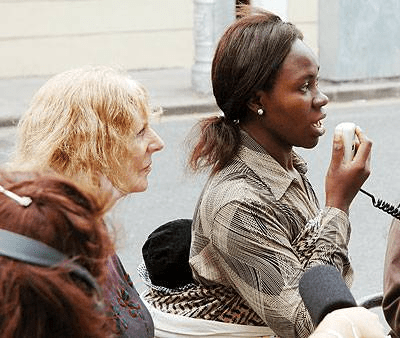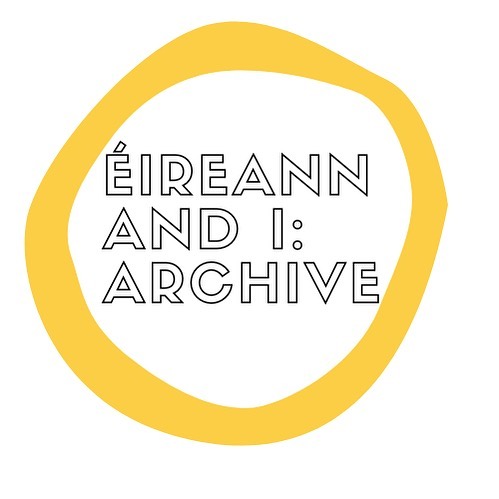To paraphrase Jamaican cultural theorist Stuart Hall, “We do not understand who we are until we tell our own stories to ourselves”. It is with this in mind that artists and activists Beulah Ezeugo and Joselle Ntumba began to develop Éireann and I, an online archive recording the experiences of black communities in Ireland. As part of the Rapid Residency programme in Science Gallery Dublin, the duo have begun to bring this project to life, with mentorship from the 100 Archive on how to use digital tools to capture and reflect a distinct community. While hopefully useful for them, this process of knowledge sharing has provided an opportunity for us to reflect on the broader field of archiving: who does it, how, why and for whom? As we discovered, these questions underpin everything Éireann and I do…

Éireann and I is a collaborative project that sources, contextualizes, and chronicles the experience of Black migrants in Ireland in a way that discards the colonial underpinnings of a traditional archive. The problem with traditional archives is that they were almost always created with a colonial approach. A true account of the experiences of migrants in Ireland can’t be captured by someone who hasn’t experienced it directly. Navigating their African roots and their Irish identity, Éireann and I documents the experience of immigrant groups in Ireland. The African diasporic groups in Ireland didn’t have a voice, especially older generations who were isolated and neglected in society. With the advent of social media and technological advancements, a digital repository is a way to connect people to their past, while also forging strong connections and a sense of belonging for the future. Self-initiated projects are more easily realised, no longer are archaic institutions the only way of archiving and documenting the experiences of societal groups of people.
Joselle discusses the role of surveillance in traditional archiving, whereby a group of people are viewed from afar and not engaged with on a more meaningful level, never getting to tell their own story. “Erasure of history and culture was common, as colonial states held the monopoly over the production of knowledge by employing historians to observe and write about the functionings of native societies”. Traditional institutions may hold this intellectual property or the histories of migrant groups, and may or may not make this information inaccessible to the public, or to the communities represented.
Éireann and I works within the community to gather materials which document the Black Irish experience. The archival materials go back to the early 90s when there was an increase of people coming to Ireland to create a new life for themselves and their families. The archive will be fully accessible, operating under a copyleft model. It is a mix of personal and political, such ephemera relating to deportation protests and other photographic materials which depict life in direct provision. Materials are sourced through submission from the community.

The importance of an archive created by people that have direct experience to its content cannot be overstated. As Joselle explains, “our position in Ireland has developed as we have built more solid grounding and communities. We have been learning how to navigate both our Irish and African identity to create a third space where we can exist. For example the emergence of a creative collective has contributed to the formation of a Black Irish culture and has allowed people the freedom of expression to embrace both our Irish culture and African heritages.”
The community led nature of Éireann and I has presented challenges, as older generations of migrants may not be present on social media. A way that Éireann and I tries to solve this issue is by hosting workshops, where people can gather to share oral histories within their community, creating more inclusivity and stronger connections between generations. These workshops don’t just serve to gather materials, they also offer the community the opportunity to shape the archive: what it collects, how it collects it and why. As Beulah asserts, “Many black communities have been excluded from the institutions that should legitimise our collective experiences. As a direct response to this we wanted to position this archive as an alternative space for our communities to explore”.
Éireann and I creates a space where the community can make collective decisions about what is valuable for preservation, shape a collective memory of the Black Irish experiences, and control the means by which stories of the past and present are constructed. “We've learned that a lot of older migrants' experiences have been defined by feelings of isolation or marginalisation. The Irish state has a long history of othering and institutionalising those who are deemed as socially undesirable, we saw this happen for women in the Magdalene Laundries and children in the Industrial Schools, and we see it happen now for ethnic minorities through the Direct Provision system” Beulah states.

Focusing on the last 30 years, Éireann and I is a time capsule of sorts. With the Black Irish community establishing their place in Ireland, a greater amount of ephemera will be generated and archived. Beulah enthuses, “We hope that this archive can be a long standing community project as well as an educational resource for people...an experimental space wherein communities can interrogate the limits of what an archive can be — there is room for the project to go in any direction, depending on what communities deem is important to preserve.”
For more information on Éireann and I, head over to their website and check out Twitter and Instagram for updates on the archive.
